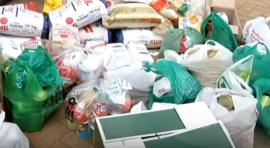Thousands of food parcels for low-income households in Gauteng's food banks have been piled up due to payment delays by the Gauteng Department of Social Development. The department had experienced delays in its tender process to appoint supplier companies, leading to the food banks being out of stock for the first nine months of the 2023/24 financial year. In February 2024, the department used emergency regulations to appoint 15 suppliers of food parcels, spending a total of R22-million.
Deviations from usual tender procurement processes are allowed under certain circumstances, including in emergency situations. The department told its bid adjudication committee that "procurement by other means" was necessitated by the high rates of food insecurity in the province. Seventeen companies were selected from the Central Supplier Database and asked for quotations, and 15 were awarded contracts. The companies signed three-month contracts to supply thousands of food parcels to the province's food banks. However, the food banks were only funded until the end of March 2024, when the financial year ended.
Two food banks GroundUp spoke to said they have thousands of food parcels piling up in their warehouses and that they have not received any funding from the department since the last financial year. The department did not respond to detailed questions, despite several follow-up attempts. However, the department recently posted a picture on Facebook of the new MEC for Social Development, Faith Mazibuko, visiting food banks, suggesting there are attempts to resolve issues facing the food programme.
The appointment of 15 suppliers without tender processes was one of several deviations from supply chain management processes by the department in the last few months of 2023/24, in a bid to spend its budget by the end of the financial year. By September 2023, the department had only spent 37% of its budget for goods and services, which included food parcels and dignity packs. In February, the department spent R159-million on 1.7-million dignity packs, again not going through tender processes and using emergency regulations.



